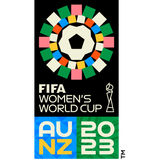
Parity, bigger field mean there could be surprises at the Women's World Cup
There could be some surprises at the Women's World Cup.
Sure, the United States is still considered dominant, and those elite European teams have developed even more with the rise of competitive clubs. Then there's Brazil, which always seems on the verge of a breakout.
But an expanded field of 32 teams at the tournament starting Thursday in Australia and New Zealand means more players will see the international spotlight — and they no doubt want to prove they belong.
Consider Japan.
Back in 2011, Japan wasn't expected to make the semifinals, let alone the championship match. But the Japanese, reeling from the earthquake and tsunami that devastated their country earlier that year, rallied and beat the Americans on penalties after a 2-2 draw, and in the process became the first Asian team to win soccer's top prize.
That was the last Women's World Cup that wasn't won by the United States. The No. 1-ranked Americans aim to make it three in a row.
U.S. coach Vlatko Andonovski is well aware that other countries are catching up. He pointed to Zambia's exhibition victory over Germany in the run-up to the tournament.
"The top 10 have always been there," Andonovski said. "The world that is catching up is Wales, Vietnam, Zambia, Portugal. These are the countries that are catching up. The 7-0, 8-0 games are gone. And we can see that Germany plays against Zambia, loses 3-2. Those games are going to happen, and that's what we are preparing ourselves for — so we don’t run into a game like that with the mentality that it’s gonna be easy.
"No game is gonna be easy. It doesn’t matter who’s in front of us."
Canada is considered among those top teams, particularly after winning the Olympic gold medal at Tokyo. But coach Bev Priestman suggested that growing parity means there are no givens.
"It could really throw up some surprises just on tournament football; you can lose group-stage games and then go on to win the thing," Priestman said. "It’s tighter than it’s ever been."
There are eight teams debuting at the tournament, including Ireland, Vietnam, Zambia, Haiti, Morocco, Panama, Portugal and the Philippines. While most stand little chance against the likes of France or Sweden, there's always that hope.
And there's hope that the international stage will help push federations to invest in more for the teams that don't traditionally have support.
"A lot of federations are slowly getting into the trend of being better," South Africa forward Thembi Kgatlana said. "A lot of those girls in those countries have been professional athletes, so they have an idea of what it means to be a professional. And when they go back to the respective national teams, they are able to also help and say, 'Hey, we need this, we need that.' It kind of forces the national teams to also adapt into the trends of changing and becoming better."
Players are well aware that the World Cup gives them the platform to speak about inequity, human rights and a whole host of social issues.
At the World Cup final four years ago in France, fans chanted "Equal Pay!" in support of the Americans’ fight for equitable compensation to their male national team counterparts. The players struck a contract that equalized pay last year.
Now other teams are joining the call for better pay and conditions. A group of international players, backed by the global players association FIFPRO, called on FIFA to increase prize money and make sure that each player at the tournament gets a share of those funds.
As a result, all 736 players participating at this World Cup will each get at least $30,000, an amount that increases the further teams advances in the tournament. FIFPRO has vowed to make the money gets to the players.
The overall fund for this World Cup is $152 million, covering prize money, team preparation and payments to players’ clubs. That's a 300% increase over the funds for the 24-team edition in 2019, and 10 times what it was in 2015.
Reporting by The Associated Press.
